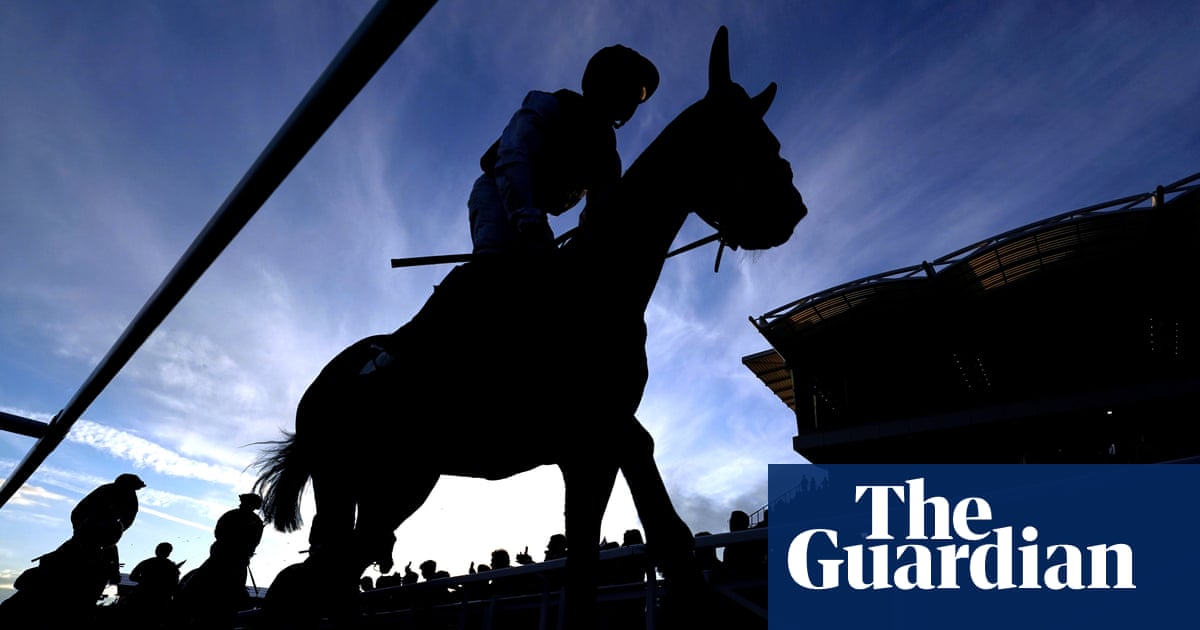Five days before the Grand National, the most famous and popular race of the year, British racing’s biggest employer has finally filled its most influential role after the Jockey Club announced Reach plc chief executive Jim Mullen will take over at the helm.
Mullen was unveiled a full 10 months after Nevin Truesdale announced he would be stepping down as the Jockey Club’s group chief executive and while the new appointee is a lifelong racing fan and owner, he was not the first choice for the role. He will replace an acting CEO who has been keeping the seat warm after an earlier pick for the role had second thoughts.
He will also arrive at the day-to-day helm of the Jockey Club, a self-elected body which operates under a Royal Charter, after what can only be described as a difficult six-year spell at Reach, the publisher of the Mirror, Daily Express and Daily Star among many others, and at a time when attendance at the Cheltenham festival, the biggest revenue generator by far on the racecourse arm’s balance sheet, is in a sudden, steep decline.
And, perhaps most significantly, Mullen is also the first Jockey Club CEO with a background in the gambling industry. In this sense, his recruitment echoes the arrival of Martin Cruddace – also a former employee of Mirror Group Newspapers, oddly enough, albeit in the dim and distant past – to head up Arena Racing Company (ARC), Britain’s other major racecourse operator alongside Jockey Club Racecourses (JCR), after stints as a senior executive at Betfair and as chief executive of the Association of British Bookmakers.
Mullen joined William Hill in 2010 as chief operating officer and later spent three years from March 2015 as CEO of Ladbrokes Coral. As a result of his time on the other side of the fence, as it were, he will be intimately acquainted with the detail of precisely how much the racing sector of their business is worth to the bookies.
Cruddace is widely believed to have used a similar industry background to seal an impressively lucrative media rights deal from online firms who stream racing from ARC tracks. JCR is currently getting a smaller slice of online turnover, despite staging the vast majority of British racing’s most popular races and events.
Quick Guide
Greg Wood’s Tuesday tips
Show
Lingfield: 2.02 Charlie Mason 2.32 Mandana 3.02 Disclosure 3.38 Dance Time (nb) 4.13 War Hawk 4.48 Port Road 5.20 Midnightattheoasis (nap).
Fakenham: 2.10 Summerleaze 2.40 Kelijoe 3.10 Rock On Rita 3.45 Jongleur D’Etoiles 4.20 Busy Being Busy 4.55 Red Delta.
Kempton: 2.22 Go West 2.52 Character Testing 3.22 Demoiselle Kap 3.55 Flegmatik 4.30 Lions Peak 5.05 Viroflay.
Wolverhampton: 5.25 Disquietude 6.00 Could Be The Move 6.30 Nobleman 7.00 Dicko The Legend 7.30 Rumba Bay 8.00 Kondratiev Wave 8.30 I Can’t Believe.
Cruddace’s deal was such a good one for his tracks that Paddy Power and SkyBet briefly threatened to scrub a meeting at one of ARC’s courses from their websites last year, while calling for “a conversation about media rights”, but a stiff letter from ARC’s lawyers was enough to bring them swiftly back into line.
ARC’s business model is largely driven by off-course betting, whereas attendance and its associated revenues is important for JCR. But the strange situation in which online firms pay a bigger slice of their turnover for betting on a Class 6 handicap at Southwell than they do for offering odds on the Grand National or Cheltenham Gold Cup is one that Mullen is well positioned to address.
There is additional baggage, though, from Mullen’s time at Ladbrokes Coral Group which also needs to be unpacked.
His three years in charge covered the final throes of the 15-year controversy over £100-a-spin fixed-odds betting terminals on Britain’s high streets. And as familiar names that had built their brands on racing and bookmaking fought to avoid a £2 spin restriction, Mullen was, in the words of a leading online gambling news website, “the most outspoken industry leader with regards to the FOBTs debate”.
It didn’t work; the £2 limit arrived in 2019 and the predictions of Mullen and others that it would lead to shop closures, job losses and immediate financial meltdown in racing did not come to pass.
Racing is, though, paying a price for the way in which fixed-margin gaming and its guaranteed profits gripped the gambling industry from the day that the first FOBT was plugged in and switched on.
The issue of “affordability” checks on punters that has preoccupied racing for several years is focused on the online market. But the fact that racing and other betting on sport is lumped in with gaming products such as slots and roulette when deciding that checks are necessary owes much to the perceived excesses of the FOBT era which saw the erasure of long-established distinctions between betting and gaming.
One of Truesdale’s achievements as the Jockey Club’s CEO was to prompt a parliamentary debate on affordability checks via an online petition which attracted more than 100,000 signatures. He will now be succeeded by someone who played at least some part – and, some might suggest, a not insignificant part – on the other side of the debate and whose former industry arguably toxified gambling – leaving racing and betting to suffer in the fallout.
